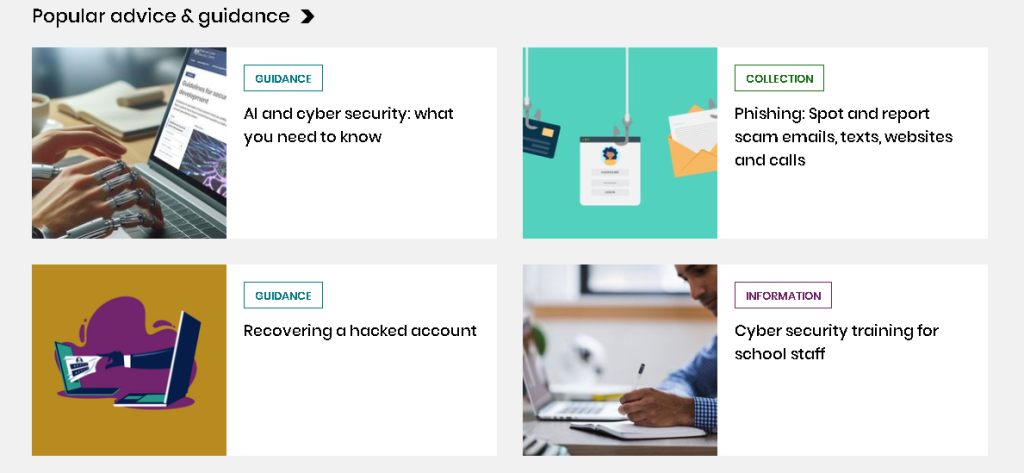According to a recent report by Statista, the cost of cyber crime in the UK every year, as of 2023, was estimated to be around US$ 320 billion, and by 2028, it is expected to increase to over US$ 1.82 trillion. Besides cybercrimes, there are multiple other threats that businesses often suffer. Our guide shares the top 15 accounting security tips to protect your company from such threats.
Table of Content
Why is accounting security important?
Accounting security is important for firms because it protects sensitive data from cyber theft, physical attacks, fraud, and unauthorised access. It ensures the firm can safeguard client confidentiality, meet regulatory compliance, and protect its reputation in the market.

These firms are highly vulnerable to cyber attacks as they contain personal data offline that can be valuable to criminals for money laundering and other crimes.
Some of the popular accounting security attacks include
- Phishing
- Malware
- Insider threats
- Data breaches
- Password attacks
- Man in the middle attacks
- Cloud storage attacks
- Ransomware
Key takeaways
- Accounting security protects sensitive data from cyber theft, fraud, and unauthorised access.
- Popular accounting security attacks include phishing, malware, insider threats, data breaches, and password attacks.
- Implement strong security measures, protect user accounts and passwords, and implement proper software security updates.
- Stay updated with present threats and plan proper measures.
- Educate your team members on accounting security.
Top 15 accounting security tips for your firm
Listed below are some of the top 15 accounting security tips that you can implement in your form to safeguard your confidential data.
1. Create a strong and unique password
You must always use complex passwords for all your accounts, especially email accounts, as they are highly targeted by cyber attackers. As per the National Cyber Security Centre (NCSC), you can use three random words in different cases with a combination of numbers and symbols like (8DOgWhiteHouse!).
Such passwords are saved directly in web browsers, so you don’t worry about forgetting them, and it becomes difficult for hackers to crack.
2. Use a password manager
Using a password manager in your firm can be helpful in storing and sharing usernames and passwords with your team. Another key feature of the tool is whitelisting IP addresses, which means no one can access your password if they aren’t within the IP address.
It also assists you in creating strong and complex passwords for different accounts.
You can also use a Google password checker to identify if your passwords are compromised.

3. Use VPN in public Wi-Fi areas
You can find free public Wi-Fi services at coffee shops, airports, restaurants, hotels, etc. These Wi-Fi networks are usually less secure and are highly susceptible to cybersecurity attacks, leading to data breaches. Data breach is the unauthorised access of your sensitive and confidential data.
You can prevent this by using a virtual private network VPN in public places.

4. Install multi-factor verification
Multi-factor authentication (MFA) or the two-factor authentication method adds extra protection to your account, making it difficult for anyone who wants to access it illegally. These verification processes require a one-time passcode that is sent to a device you possess immediately after logging in to access the account.
Share these security tips among all team members to prevent data theft.

5. Ensure data encryption and secure transmission
Data encryption is important when transferring confidential information to other companies or team members. You must use a special code to access the files while sharing data and ensure all your team members know how to use these data protection methods.
Additionally, you can find apps on the internet, like Sync, that will help you securely share files.
6. Control employee access to sensitive data
Even if a firewall guards your computer, you must use passwords to protect user accounts and confidential documents. Allow employees needing access to your sensitive data to view it for physical security.
It prevents intentional or accidental data breaches, tracks who accessed your data and when it meets regulatory requirements, and protects sensitive financial information.
7. Protect against viruses
You need a good security system, such as firewalls and antivirus software for your devices, especially those connected to the network, such as laptops and desktop computers.
Sometimes, malicious software or malware may not be as harmful as news headlines say, but they can slow down your system. An updated antivirus software can regularly check for malware and remove them if found.
8. Backup your files and cloud accounting data
Companies spend hours creating spreadsheets or using cloud accounting tools to record their financial records and create statements. They need to create a backup for all these files for faster data recovery in case of system failures, cyberattacks, or physical damage.
Regular backing up of your files helps during audits and resolves discrepancies.
9. Extend security measures beyond your office
Most companies have adopted a hybrid working structure, so employees often use their devices to work from their homes or public areas. To ensure data security, you need to have strict remote access policies.
Make sure your employees are using different devices for personal purposes and company use, with good antivirus software, a password protection manager, and a firewall. You must also consider implementing email scanning methods to identify and prevent potential phishing email attacks.
10. Watch out for identity theft
When someone steals your personal data and uses it fraudulently, it is known as identity theft. To prevent them, you must never share your social security number or payment card details with anyone other than for transaction purposes.
11. Encrypt your hard drive
Encrypting your hard drives safeguards your sensitive financial information from unauthorised access and prevents data theft. However, you can only allow the use of disks and drives owned by your company with a proper security system, and you discourage your team from using them on third-party devices.
12. Educate your team on security
Tell your team members about the necessity of security measures in business, and train them on cyberattacks, physical threats, etc. They must know how to protect themselves from cyber criminals and be encouraged to report any suspicious activity or behavior that is found online and offline to management.
The National Cyber Security Centre NCSC shares tips for organisations on protecting their data from cyber attacks, phishing, and other vulnerabilities. You and your team can read them for free and protect yourself from attackers.

13. Test your security measures
You must regularly check your security measures to see if they work correctly and can resolve current security threats. To protect your devices, you should periodically update all your software, including antivirus, operating systems, and firewalls.
14. Implement a data recovery plan
Even though you have set up all security measures, your firm may sometimes face data breaches or losses. Therefore, you must always create a data recovery plan ahead of time and proper security protocols to quickly retrieve and recover your essential data.
15. Have a proper employee offboarding process
You must immediately remove all access granted to employees not part of your company when they leave. Create a checklist of apps and systems where you have previously provided access to them, and remove all one by one.

Conclusion
Every business must focus on its accounting security to ensure that its financial data and confidential client data are safe. These tips will help you secure your valuable information and protect your business from cyber and physical attacks.However, If you still don’t understand how to manage accounting security in your business, consider outsourcing to a third-party accountant. They can handle your firm’s IT and security needs while letting you focus on core business activities.











